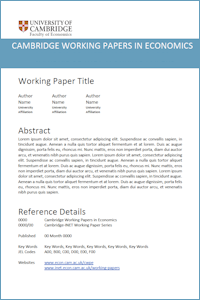
Ahlqvist, V., Holmberg, P., Tangeras, T.
Central- versus Self-Dispatch in Electricity Markets
CWPE1902
Abstract: In centralized markets, producers submit detailed cost data to the dayahead market, and the market operator decides how much should be produced in each plant. This differs from decentralized markets that rely on self-commitment and where producers send less detailed cost information to the operator of the day-ahead market. Ideally centralized electricity markets would be more effective, as they consider more detailed information, such as start-up costs and no-load costs. On the other hand, the bidding format is rather simplified and does not allow producers to express all details in their costs. Moreover, due to uplift payments, producers have incentives to exaggerate their costs. As of today, US has centralized wholesale electricity markets, while most of Europe has decentralized wholesale electricity markets. The main problem with centralized markets in US is that they do not provide intra-day prices which can be used to continuously up-date the dispatch when the forecast for renewable output changes. Intra-day markets are more flexible and better adapted to deal with renewable power in decentralized markets. Iterative intra-day trading in a decentralized market can also be used to sort out coordination problems related to non-convexities in the production. The downside of this is that increased possibilities to coordinate increase the risk of getting collusive outcomes. Decentralized day-ahead markets in Europe can mainly be improved by considering network constraints in more detail.
Keywords: wholesale electricity markets, market clearing, centralization, decentralization, unit-commitment, self-dispatch
JEL Codes: D44 L13 L94
PDF: https://www.econ.cam.ac.uk/research-files/repec/cam/pdf/cwpe1902.pdf 
EPRG Paper Link: 1902
Open Access Link: https://doi.org/10.17863/CAM.37459
